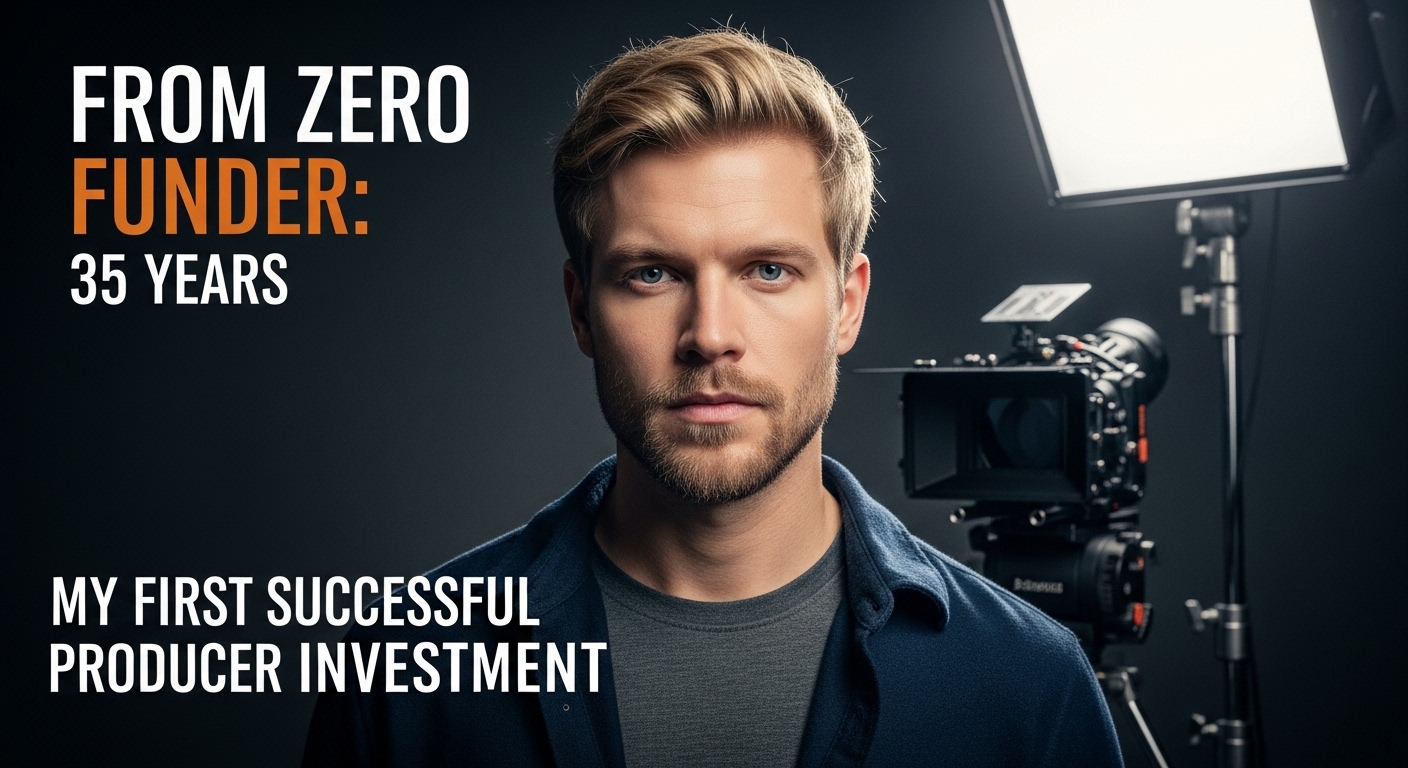Introduction to Film Producers.
Film producers play a crucial role in the movie-making process, but not all producers are created equal. This article will explore the various types of producers in the film industry, comparing their roles, responsibilities, and impact on the production process.
Executive Producer.
Executive producers are often considered the highest-ranking producers on a film project. They are typically responsible for securing financing, overseeing the budget, and making high-level decisions about the project. Executive producers may not always be involved in the day-to-day operations of filmmaking but have significant influence over the project’s direction.
Line Producer.
Line producers are the logistical masterminds behind film production. They manage the day-to-day operations, including budget allocation, scheduling, and hiring crew members. Unlike executive producers, line producers are deeply involved in the practical aspects of filmmaking, ensuring that the production runs smoothly and efficiently.
Creative Producer.
Creative producers focus on the artistic aspects of filmmaking. They work closely with writers and directors to develop the script, provide creative input, and help shape the overall vision of the film. Creative producers are often involved in the project from its inception and may have a significant influence on the final product’s artistic direction.
Associate Producer.
Associate producers typically assist higher-ranking producers in various aspects of production. Their roles can vary widely depending on the project and production company. They might handle specific tasks like coordinating with vendors, managing paperwork, or overseeing certain production elements. Associate producers often use this role as a stepping stone to more senior producing positions.
Co-Producer.
Co-producers share producing responsibilities with other producers on a film. They might be brought in for their expertise in a specific area, such as visual effects or music production. Co-producers can also be investors who have a say in the creative process due to their financial contribution to the project.
Impact Producer.
Impact producers are a relatively new breed in the film industry, focusing primarily on documentaries and socially conscious films. Their main goal is to maximize the social impact of a film by developing and implementing outreach strategies, organizing screenings, and engaging with communities and policymakers.
Comparison of Financial Responsibilities.
Executive producers and line producers typically have the most significant financial responsibilities. Executive producers often secure funding and manage high-level budgetary decisions, while line producers handle the nitty-gritty of budget allocation and cost management. Creative and impact producers generally have less direct financial responsibility but may influence budget decisions related to their areas of expertise.
Comparison of Creative Input.
Creative producers and executive producers often have the most substantial creative input in a project. They work closely with writers and directors to shape the film’s narrative and overall vision. Line producers, while crucial to the production process, typically have less creative influence. Impact producers may have creative input specifically related to the film’s social message and outreach strategy.
Comparison of Day-to-Day Involvement.
Line producers and associate producers are usually the most involved in the day-to-day operations of filmmaking. They handle logistics, scheduling, and on-set issues. Executive producers and creative producers may have less daily involvement but make crucial decisions at key points in the production process. Impact producers’ involvement can vary but often intensifies after the film is completed.
Comparison of Industry Influence.
Executive producers often wield the most industry influence due to their connections and ability to greenlight projects. Creative producers can also have significant influence, especially if they have a track record of successful films. Line producers, while respected for their practical skills, may have less overall industry clout. Impact producers are gaining influence, particularly in the documentary and independent film sectors.
Comparison of Career Paths.
The career paths for different types of producers can vary greatly. Many start as associate producers or production assistants and work their way up. Some may transition from other film industry roles, such as directors or writers becoming creative producers. Executive producers often come from business or finance backgrounds. Impact producing is an emerging career path often attracting individuals with backgrounds in activism or social sciences.
Collaboration and Overlap.
While each type of producer has distinct responsibilities, there is often significant collaboration and overlap between roles. A successful film production typically requires a team of producers working together, each bringing their unique skills and perspectives to the project.
The world of film producing is diverse and complex, with each type of producer playing a vital role in bringing a movie to life.
From the financial acumen of executive producers to the creative vision of creative producers, the logistical expertise of line producers, and the social conscience of impact producers, each contributes uniquely to the filmmaking process.
Understanding these different roles and how they compare is crucial for anyone looking to navigate the film industry or appreciate the intricate process behind movie production.
Film Producers vs Executive vs Associate vs co-producer In Film Credits.
What do the different producer credits on a film (Executive Producer, Producer, Co-producer, Associate Producer, etc.) generally mean?
A film producer is someone who oversees the making of a movie. They are responsible for putting together the team that will make the film, including the director, writers, and actors. The producer also raises money for the project and ensures that it stays on budget.
There are different levels of producers on a film. The executive producer is usually the person who came up with the idea for the movie and got it greenlit by a studio. They may also be responsible for finding financing for the project.
The producer is the one who actually oversees the day-to-day production of the film. They work with the director to ensure that everything is running smoothly and on schedule. The co-producer is someone who helps out with both the creative aspects of making a movie as well as its financing.
Duties of an Executive Producer.
An executive producer is a person who oversees the production of a film. They are responsible for the overall management of the project, and work closely with the director to ensure that the project is completed on time and within budget.
Also read – Master Filmmaking In Short Courses.
The duties of an executive producer vary depending on the size and scope of the project, but typically they are responsible for raising funds, hiring crew, and securing locations. They also work closely with the cast and crew to ensure that everyone is aware of their roles and responsibilities.
Executive producers often have a background in film or television production, but it is not required. The most important thing for an executive producer is to have a clear vision for the project and be able to communicate that vision to those who are working on it.
Duties of a Producer.
A film producer is responsible for the overall production of a movie. They work with the director to ensure that the project stays on schedule and within budget. The producer also manages the cast and crew, and makes sure that everyone is doing their job properly. In addition, the producer helps to market the film and get it distributed to movie theaters.
Without a good producer, a film would never get made. The producer is the one who makes sure that everything runs smoothly and that the project stays on track. They are also responsible for working with the director to ensure that the vision for the film is realized. Without a producer, a film would be chaos >>> more
Duties of a Co-producer.
A co-producer is someone who helps the producer with the day-to-day tasks of making a movie. They are responsible for keeping track of the budget, scheduling, and making sure that the production runs smoothly. Co-producers also help with pre-production tasks such as finding locations and hiring crew.
They may also be responsible for post-production tasks such as editing and marketing. The duties of a co-producer vary depending on the size and scope of the project. However, they always play an important role in helping the producer create a successful film.
Duties of an Associate Producer.
An associate producer is a member of the production team who assists the producer with various tasks. These can include helping to secure funding, finding locations, hiring crew, and managing schedules. An associate producer may also be responsible for doing some of the legwork when it comes to research or preparing for meetings. In some cases, they may also be involved in the post-production process.
Duties of a Line Producer
A line producer is responsible for the day-to-day operation of a film or television production. They work closely with the producer to ensure that the project stays on schedule and within budget. Line producers also oversee the hiring of crew members and the coordination of resources.
As the project manager, a line producer must be able to handle last-minute changes and keep the production running smoothly. They must also be able to troubleshoot problems that arise during filming. Strong communication and organizational skills are essential for this role. >>> MORE
Why are there so many producer and executive producer credits on films and TV shows? Often a film’s lead actors also have a producer credit – why?
In the film and television industry, producers are responsible for overseeing the development and production of a project. Executive producers, on the other hand, typically have more creative control and are involved in the day-to-day operations of a film or TV show. So why are there so many producer and executive producer credits on films and TV shows? There are a few reasons.
For one, the film and television industry is increasingly complex and globalized. With so many moving parts, it’s important to have multiple people in charge of different aspects of a project. That’s why you’ll often see multiple producers listed on a single film or TV show.
Another reason is that the role of producer has become more specialized over time. In the early days of Hollywood, producers were generalists who oversaw everything from financing to distribution.
What is the difference between a producer and an executive producer on a TV show?
The difference between a producer and an executive producer on a TV show can be confusing, but it is important to understand the role of each. A producer is responsible for the overall production of the show, including budgeting, scheduling, and working with the creative team.
An executive producer is typically more involved in the business side of things, such as raising funds and making deals with networks or distributors. Executive producers may also have a hand in the creative process, but their primary focus is on the business side of things.
What’s the difference between a show runner, an executive producer, a producer, and a director?
In the film and television industry, there are different types of producers who are responsible for different aspects of a project. A show runner is the head writer and executive producer of a television series.
They are in charge of the day-to-day operations of the show, including writing, casting, and budgeting. An executive producer is someone who oversees the development and production of a film or television series. They are usually the ones who finance the project and hire the creative team.
A producer is someone who oversees all aspects of a project from development to post-production. They work closely with the director to ensure that the vision for the project is realized. A director is responsible for helming a film or television episode. They work with the cast and crew to bring the script to life and capture the vision of the producers.
What exactly does a producer of independent film do?
Independent film producers are responsible for the development, financing, and production of films. They work with writers to develop scripts, secure funding from investors or distributors, and assemble the cast and crew. Producers also oversee pre-production, post-production, and distribution.
Independent film producers often have a background in filmmaking or another creative field. Many have worked their way up through the ranks of the film industry, starting as assistant directors or production assistants. Others come from a business or finance background and use their skills to secure funding for projects.
Producers must be able to wear many hats and juggle multiple tasks at once. They need to be good at networking, have strong people skills, and be able to negotiate contracts. Most importantly, they must be passionate about film and committed to bringing unique stories to life.
In movie and/or TV credits, what is the difference between producer, executive producer and co-producer?
In film and television, a producer is the person who oversees the development of a project from its inception to completion. A co-producer is someone who shares in the responsibility of producing a project. An executive producer is someone who has the final say on all aspects of production, from creative to financial.
How do executive producers get paid?
Executive producers typically get paid a fixed fee for their work on a film or tv show. They may also receive a percentage of the film’s or tv show’s profits. Executive producers usually have more creative control than other producers and often have final say over which projects to greenlight .
What kinds of conflicts can executive producers face?
Executive producers are responsible for every aspect of a production. This means they deal with all the same problems as any other producer, but also carry the burden of final say on all creative decisions . It can be frustrating to have to make the final call on a decision, when you’re not sure if you’re making the right one.
What are the benefits of being an executive producer?
An executive producer is a film producer who is in charge of the financial aspects of a movie production. They work with the studio and investors to raise money for the project and then oversee the production budget.
- Executive producers typically have a lot of experience in the industry and are able to use their contacts to get the best deals for the production. They also have the final say on all financial matters, which can be a great responsibility.
- Being an executive producer can be very rewarding, both financially and professionally. It is a great way to be involved in the movie industry and to have a hand in making some of Hollywood’s biggest hits.
How does one get into the movie business as an actor, producer or director?
For anyone interested in a career in filmmaking, it is important to understand the different roles that make up a production team. The three most common positions on a film set are that of actor, producer or director.
Although each role has its own unique set of responsibilities, there are some general guidelines that all aspiring filmmakers should follow if they want to break into the business.
The first step is to get educated. There are many ways to do this, but the most important thing is to learn as much about the craft as possible. There are dozens of books and hundreds of websites dedicated to teaching people about filmmaking.
There are also many colleges and universities that offer degree programs in film and television production. Once you have a basic understanding of the filmmaking process, the next step is to start networking.
In conclusion,
It is evident that there is a big difference between a film producer and an executive producer. An executive producer is typically more involved in the business side of things, while a film producer is more creative.
There is also a big difference between an associate producer and a co-producer. An associate producer is usually less experienced and works under the supervision of the producer, while a co-producer is more equal in terms of experience and responsibility.

I am a highly experienced film and media person who has a great deal to offer to like-minded individuals. Currently working on several exciting projects, I am a film and media practitioner for over a decade. I have achieved a great deal of success in my professional career.





